Although online marketing is a relatively new concept, there’s little doubt concerning its importance in today’s business world. Digital marketing has made it a necessity for businesses to modernise and direct their marketing strategies towards their audience which is now online.
The role of marketing has always been to create a brand image and to attract and convert leads into paying customers. Understanding digital marketing is as simple as broadening what you already know about marketing.
Digital marketing is conducted on new platforms to a wider audience than traditional marketing. Another major difference is the amount of content that is being produced and the speed at which it’s being delivered and received. Digital marketing is constant and more personalised, as people carry their mobile phones and other digital devices with them wherever they go. Considering its speed, digital marketing produces instant gratification – for example, through “likes” and “shares.” That’s because unlike traditional marketing, it’s being distributed, received and given feedback, all at the same time. While this gives online marketing advantage, it also means there’s less room for errors so it’s important to plan your strategy thoroughly, as you would with traditional marketing.
Digital marketing is an umbrella term, and online marketing is just one branch of it. There are various types of digital marketing which include EDM, SMS and mobile apps and online marketing refers to marketing done on the Internet.
With all of these new marketing ideas and platforms, it can be confusing to know what’s best for your business. Here’s a rundown on some concepts regarding online marketing.
1. Strategy-Based
Comparable to any other marketing campaign, your online marketing must have a clear and well-planned strategy. The online technology is moving at a rapid speed but it doesn’t mean it needs to be rushed. Instead, your online marketing strategy should be planned ahead, while keeping an eye out for current trends. It’s crucial to pay attention to detail as there is no room for errors.
Start by conducting a situation analysis on your business. What does your business offer and what’s its advantage over competitors? What are your business’ strengths and weaknesses? Next, consider your goals. Your marketing goals and general business goals should go hand-in-hand. Determine your target market and specific demographics. What are they interested in? How will you communicate with them, to achieve your goals? It’s also necessary to consider your marketing budget, depending on how soon you wish to achieve your goals.
2. Content Marketing
Internet marketing is all about content, and whether it’s interesting for a fast-paced audience who usually have shorter attention spans. Content should be curated to suit each online platform, audience, and age demographic. While some platforms optimise images, others optimise text.
Content should be consistent in both the message and in aesthetics or visuals. This is critical considering the content contributes greatly towards a brand identity.
3. SEO
SEO, or Search Engine Optimisation, is an imperative marketing aspect of website development. SEO refers to your business’ ranking in Google’s search results and is improved by including optimised content to generate organic results. More specifically, your website content should include relevant keywords. The more content a website has with specific keywords, the more likely it is to appear as the number one result on Google.
The best way to add valuable content to your website is by blogging. Your blog posts should simply answer questions that your target demographic might be typing into Google. This should include necessary and accurate information that show off your expertise and encourage customers to choose your business over your competitors. Your content should be unique and of high quality is advantageous in Google’s SEO algorithm as it ensures that your content will stand out from the surplus information on the internet.
Having online visibility is the first step in optimising your online marketing. SEO is an important aspect. While some business owners choose to write their own blogs, others outsource them to digital marketing agencies to save time and effort. It takes months to achieve quality and organic results as SEO works according to different ranking factors that are part of Google’s algorithm. Outsourcing ensures that your website is Google-friendly, while some DIY free website creators are not Google-friendly. For best results, it’s prudent to engage an agency that specializes in your industry to achieve results.
4. PPC
Unlike the organic results in SEO, PPC (Pay per click) relies on how much you pay for an online advertisement. PPC has its advantages as it’s usually a quicker process and has a greater chance of converting leads into buyers. That’s because the advertiser ensures that your ads are highly targeted when appearing on Google’s search results. The more you pay for advertisements, the more effective and targeted they’ll be. You only pay per click, rather than per view, and have the freedom to set your budget. Most businesses choose to use a combination of SEO and PPC. This allows them to gain mostly organic results, while, going ahead with paid results.
5. Social Media
It’s easy to lump all social media into the same category, however considering the many different types of social media sites, it should be viewed as the opposite. The first mistake is distributing the exact same content to all social media sites, as each one is completely different. Each site has a different purpose, optimises different content, with different messages, to a different audience. For example, while Instagram optimises photos, LinkedIn optimises articles (text). And while Instagram is targeted towards a much younger demographic, LinkedIn is targeted towards working professionals, who tend to be older and more mature.
Social media is also about quality, over quantity. Rather than trying to run multiple accounts on every social media site, it’s more beneficial to choose one or two that work well and generate results for your business, depending on its content and audience. After all, having various social media accounts that wind up being neglected, is more damaging than not having them at all.
Another mistake that people tend to make on social media is believing that it doesn’t take long to create posts. While most posts (besides blogs and LinkedIn articles) are short and sharp, a great deal of planning and research goes into creating them to ensure they’re accurate, purposeful and professional (including correct grammar and spelling). Social media is simply another way to target an audience and to develop your business’s reputation, Marketers are taking the social media world very seriously.
While these are just a few, there are many different aspects of online marketing. The online world is rapidly expanding, which is why new business owners, or owners who are simply looking to modernise, become quite confused and overwhelmed. Whether or not you choose to outsource, it’s always advisable to seek advice from online marketing experts.
Are you still wondering about online marketing for your business?
Not sure where to begin with?
We’re here to help!
For more advice, book your FREE 30-minute consultation.








